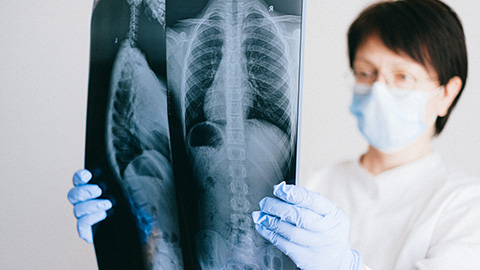Lung function tests for Covid-19
Lung function tests, otherwise called pulmonary function tests that a doctor may recommend to test a patient's respiratory health. The tests are non-invasive, and are designed to check how well the lungs and respiratory system are working. The tests will measure lung capacity, rates of flow, and will help to diagnose possible respiratory diseases. You may be prescribed the tests due to experiencing symptoms, or part of a routine physical examination.

What are lung function tests?
What do lung function tests consist of?
-
Spirometry - this is a non-invasive test to check the flow rate and volume of air that flows into your lungs when you breathe. It involves you either breathing regularly into a spirometer device, or may require you to breathe as strongly as you can.
- Chest CT or CT topogram - this is an imaging test that produces a detailed image of your chest and lungs using a CT scanner, allowing the doctor to check for any irregularities or obstructions.
-
Chest X-ray - similar to the chest CT, this is an imaging test that provides a detailed image of the lungs and respiratory system, this time using an X-ray machine.
- FeNo test - a FeNo test is otherwise known as a fractional exhaled nitric oxide test, and is used to detect the amount of nitric oxide in your breath when you breathe out. It is primarily used to detect if your airways are inflamed or if you have any signs of asthma.